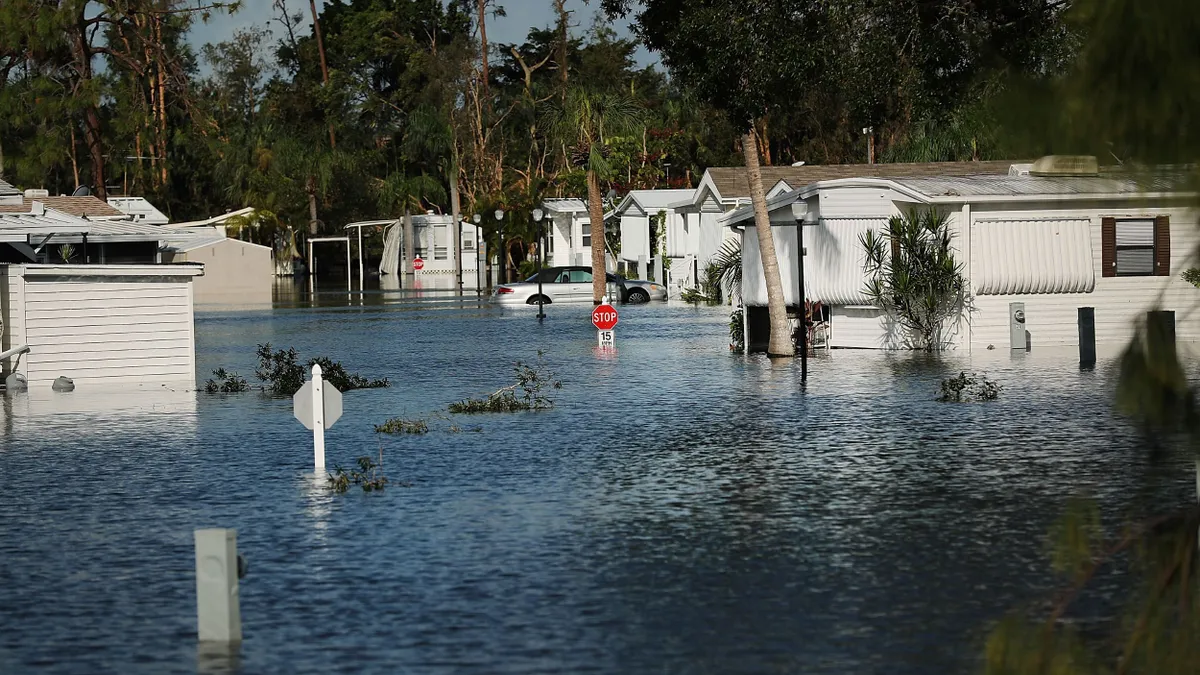Local governments in Maryland, Virginia and Washington, D.C. have rolled out curbside organics programs in recent years, and program coordinators say the success of these programs is due partly to resident enthusiasm — and partly to careful coordination and communication from county staff.
Recent changes to local laws, including an organics diversion law in Maryland and a landfill diversion goal and zero waste plan in Washington, D.C., are driving some programs, while others are taking advantage of federal or state grant funding to launch or expand such programs.
Local governments and composting vendors in the region shared what they’ve learned about operating curbside programs during a Metropolitan Washington Council of Governments meeting on Thursday. Here are some takeaways from their discussion:
Soliciting resident feedback and engagement
Resident feedback has helped shape the curbside organics program in Prince George’s County, Maryland. The county has expanded its program several times since it rolled out its first pilot in 2017, which was originally funded with a U.S. EPA grant and served about 200 households. Its most recent expansion in 2022 added another 52,000 households to the now-permanent program, and a subsequent expansion, planned for later in the year, aims to get even more residents on board, said Recycling Manager Jessica Moore.
The program is now called PGC Composts partly because the previous name included the word “organics.” Moore said the term confused residents and was a barrier to convincing more residents to join the program because they didn’t understand that their food scraps were being turned into compost.
Other hurdles residents reported included the “ick factor” of placing food scraps directly in the provided 32-gallon cart without first placing them in some kind of plastic bags, which aren’t allowed in the bin. Ongoing education programs guide residents on how to layer food, yard trimmings or paper into the bin to absorb liquids generated by the food, she said.
Conducting webinars and seminars has been an effective way to communicate directly with residents about their concerns and questions, Moore said. These seminars also generate buzz around additional roll-outs, she said.
Officials in nearby Washington, D.C., which is in the process of rolling out its first curbside composting program, also have conducted webinars to generate excitement and answer residents’ lingering questions about the program.
Coordinating with collections and equipment vendors
Just as curbside programs have benefited from direct resident feedback, it’s equally important to keep open lines of communication with collection vendors, said Rachel Manning, zero waste program analyst for D.C.’s Department of Public Works. That’s especially important in D.C. as its new program gets off the ground this month.
“Make sure that if you're contracting out that you're really communicating to your city's trash and recycling collection crews about this program,” Manning said. “A challenge that we've seen is just making sure that they're familiar with the program and not taking the bins and mistaking them as trash or recyclables.”
In Alexandria, Virginia, which recently rolled out a composting pilot, several compost containers “walked off” or were mistaken for trash until the city labeled them as being part of the curbside organics program, an official said during the COG meeting. Alexandria received a USDA food waste reduction grant to help launch the program.
Choosing vendors that already have a familiarity with local government operations can be helpful when working out the kinks of a new program, some officials said in the meeting.
College Park, Maryland, is in the process of upgrading its drop-off organics program to add curbside services. It already worked with Compost Crew, a compost collections and processing vendor that works with municipalities in the region, so it tapped the company’s expertise to help with the curbside launch, said Dan Israel, the company’s senior vice president of sales and marketing.
College Park “wanted to provide more opportunities for people to accomplish their food waste [goals] and figured that giving people the opportunity to do it curbside would encourage more participation,” he said. The program has gone from 200 homes to about 400 homes and diverted 60,000 pounds of food scraps in the first nine months of the program, he said.
Planning ahead with the vendors that supply carts and bins is also critical to a program’s success, Manning said. The D.C. program will provide residents a 5-gallon bucket and a smaller kitchen bin, but the program is facing delays, in part due to procurement issues.
“Something we learned is that supply chain is not something that you can necessarily trust. Definitely think about the timeframe that you're procuring those bins and maybe even think about combining those contracts for materials and collections so they're really in sync,” she said.





















